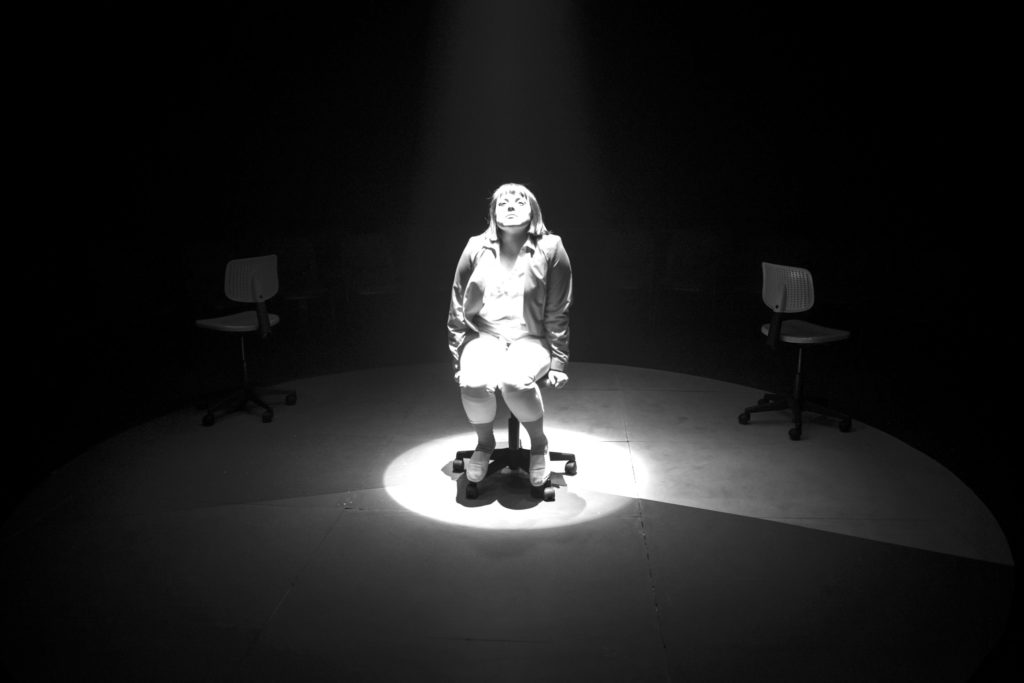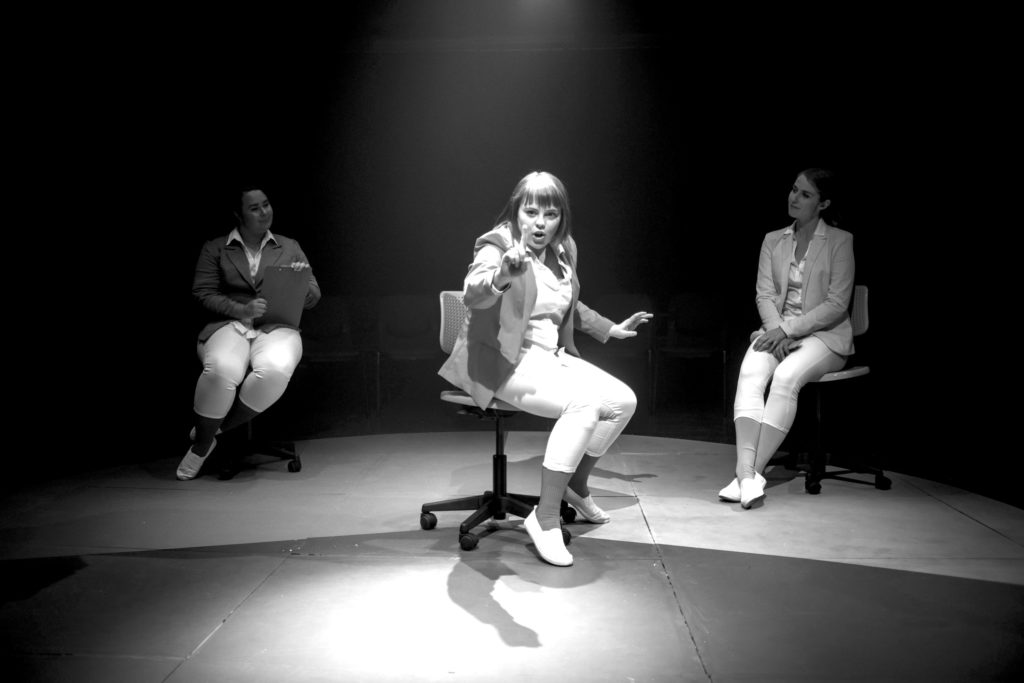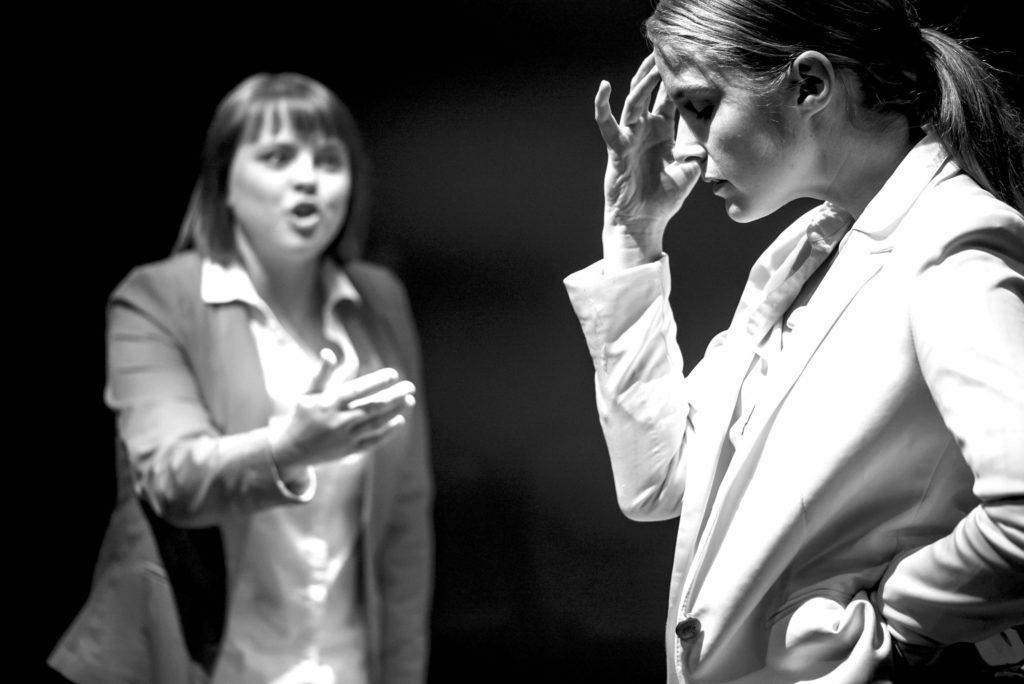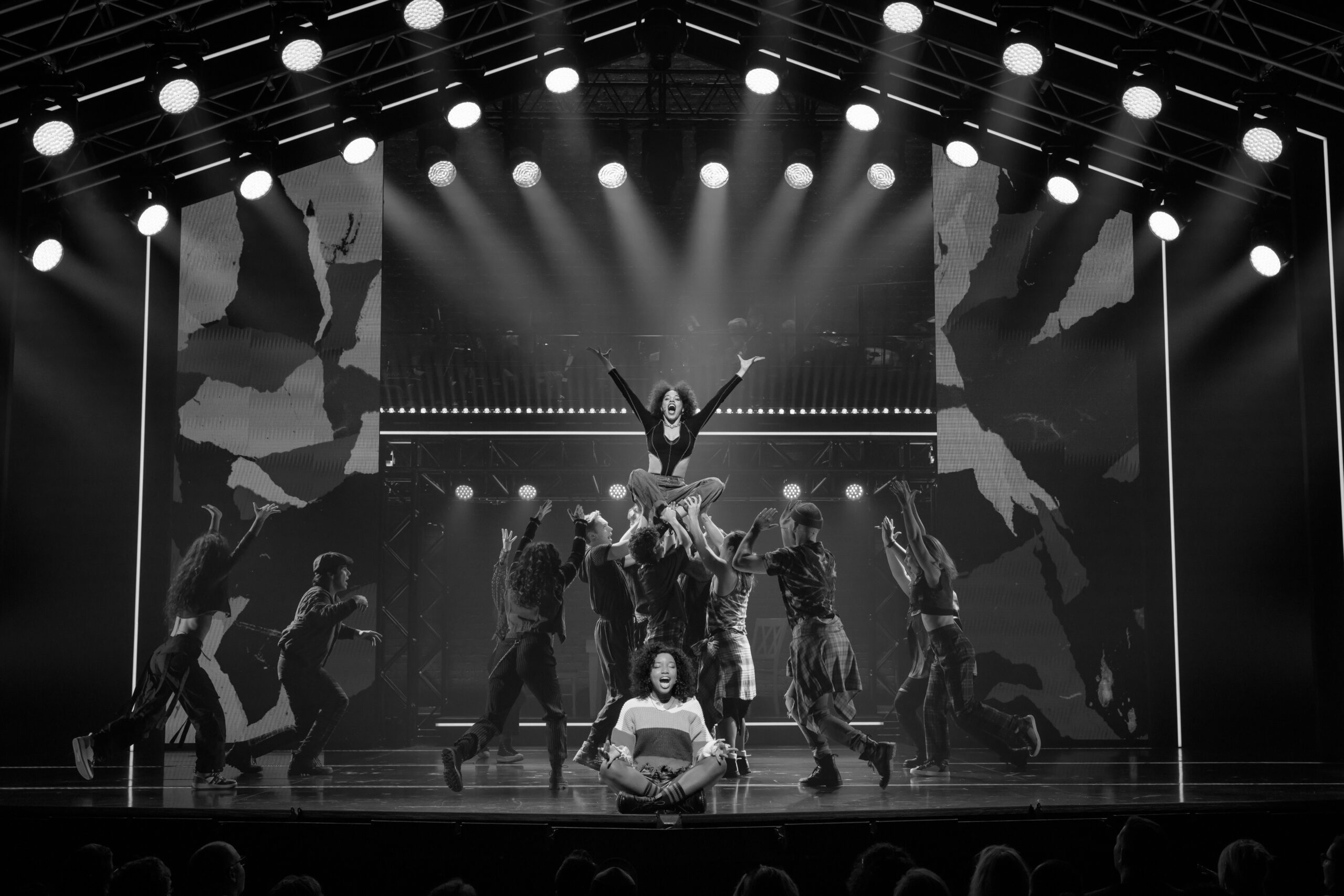ALEXITHYMIA
Life lived within the autism spectrum is a greatly misunderstood yet common place and everyday reality for some in our community. Alexithymia: Experience the World Through Autism is a truly brave work. It doesn’t seek sympathy from the audience, however it does achieve a strong sense of resonance in relating this narrative back to a level that is easily understood. Told as a triptych, each of these interconnected vignettes have trace elements of each other but stand independently and as brightly alone.
Though in the moment of performance perhaps seeming a little tedious, an experience simmers away. This performance isn’t simply a thing that you grasp or fully comprehend straight up. It brings to textures to the fore that encompass the rapidly encroaching role that technology plays, the heightened arena of television games shows, and in the final chapter, strips all this away to a delicate composition between lovers, empathy and the institution. In this composition, it is past present and future told, but discreetly so.
Comprised of three performers, the cast are each genuine in their deliverance, and you feel real emotion and connection with their respective stories. Nicola Bowman, Emma Hoyand and Keagan Vaskess really share something here, and these individual performances and respective narratives ricochet off each other in bullet-like fashion in this tightly wound script. This is elevated by the work and input of director Jayde Kirchert. The production is beautifully illuminated; Peter Amesbury has done well to achieve such effects, and his lighting design is fun and playful.
This work is evidently not one just presented to tick the “disability box”, unlike some MainStage companies this year. It paints an uncompromising yet resilient picture and leaves memories post-show that are tricky yet opulent in the non-closer. Writer Tom Middleditch has created something blinding, genuine and heart felt. It’s great stuff, and proof enough in the power of performance and its ability for portraying other realities that are not dissimilar to our own. It is true that theatre made from such a genuine approach rarely fails to disappoint, and this work is a great example of this.








